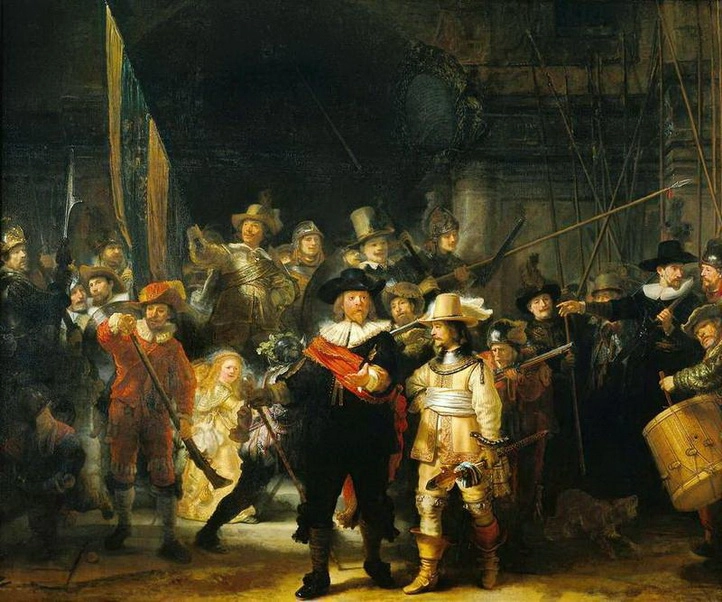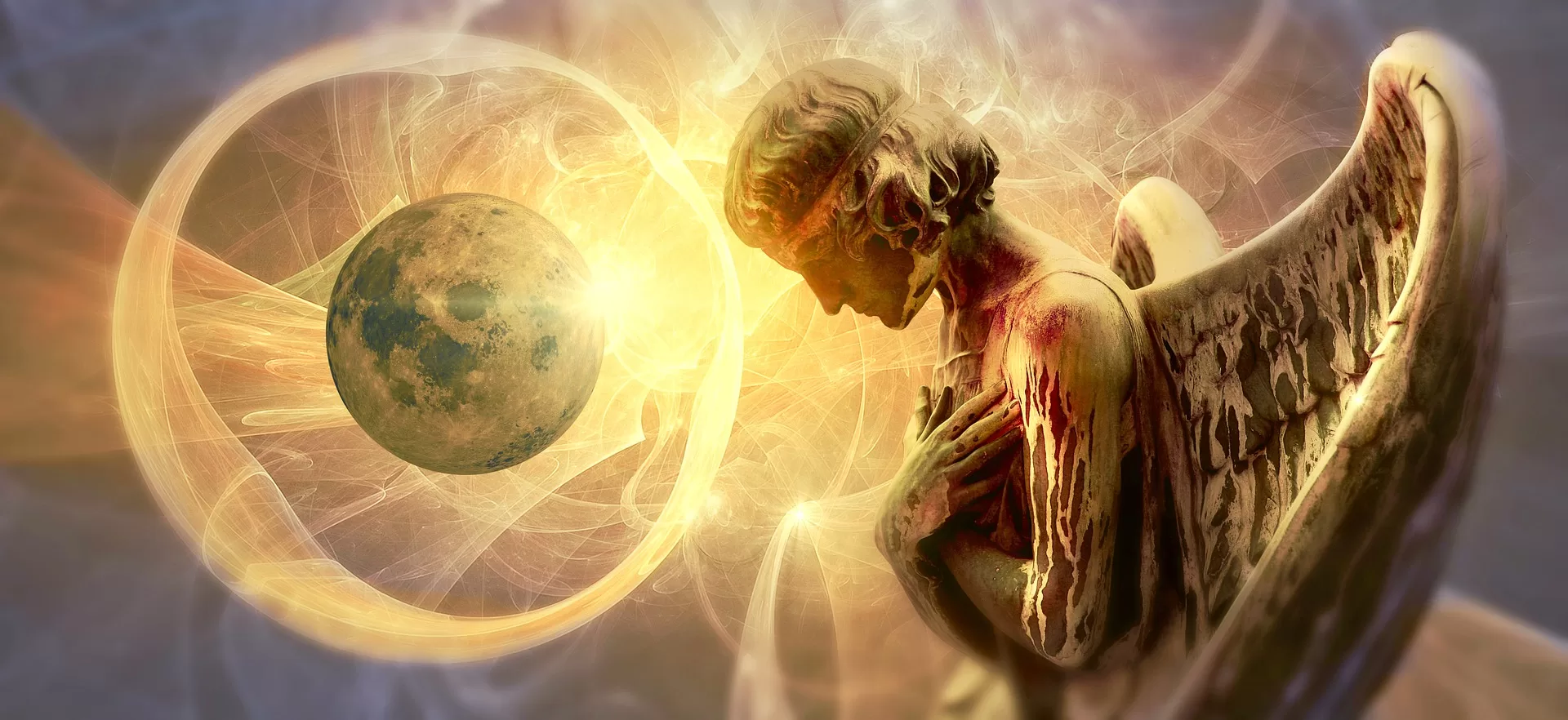We live in a time where a soulless paradigm has entrapped the masses. The adepts of this villainous and underhandedly adopted dry and scientific worldview, in which only measurability is sacred, have declared war on beliefs. Regardless of the context in which you do so, believing is testimony to retrograde imbecility, says the omniscient oracle of science. Believing is seen as an evil, because the believers do not allow themselves to be steered by the infantile and arbitrary promptings of those in power. A man of heartfelt conviction or sincere faith is accountable only to his own internalized ethics or to the higher power to which he submits, and not to the state. This is exactly why totalitarian regimes of the past sought to ban and crush belief in any form other than the prescribed.
As much as modern society tries to turn away from anything that shows even the slightest hint of belief, the irony is that that same society is defined by what people believe in that society. And just as the passage of millennia erodes archaic monuments through exposure to the elements, so have the cathedrals of carefully constructed worldviews and self-transcending values eroded over hundreds of years. The collective moral, spiritual and transcendental landscape has become a desert. One believes in nothing and without spiritual aspirations is doomed to a dry consumption of life in which, between eating, sleeping and copulating, one can only now and then briefly marvel at a scientific novelty of something or other. One is blind to the unfathomable depth and beauty of things that lie beneath the mechanistic veneer.
Cold, indifferent facts have superseded personal responsibility, and science has evolved into a purely mathematical equivalent of God. The mantra is constantly sounding that everything must be measurable, that there must be evidence. Norms and criteria are the new commandments. Norms and criteria that will be eternally external to us, and equally useful to the demagogues who ever use the dogmatic requisitioning of norms and evidence by the masses to direct them. After all, the exalted administrative clique who have proclaimed themselves the guardians of high culture know what is best for the plebs. They are highest, and the feeble-headed masses should place nothing above them.
The mind that relies solely on external confirmation of inner reality is gagged at its own request. It praises the chains with which “experts” have bound it, and squanders the unquestionable freedom afforded by the still and humble mind. A mind that dares to believe. A mind that wrestles from consensus and unanimity and is guided only by aspiration and development. As an unfolded sail propels a sailing vessel, so with an unfolded mind one enters levels of existence which would otherwise have been inaccessible. Just as a ship without a sail does not use its potential, so one does not make the most of existence with an enslaved mind. One simply cannot experience life through the eyes of another, and relying on the extrasensory all the time is a trap rather than a way out.
The frigid machine worldview that propagates an unintended globe in an unintended corner of the universe as a callous theorem manifests in the mind the same emptiness that also exists between the stars in the vast sky. An absolute spiritual vacuum. The resignation to the idea that nothing at all serves any purpose results in that without an idea of reckoning one exists only in cold calculation. This blinds you to the real wonders of the earth. This way of being is like beholding the waves of the sea, leaving the indescribably rich ocean life below sea level beyond perception.
The power to allow the unchained mind to explore the unexplored regions of the self and to prostrate before the higher is like a fall into that ocean. Here one finds at once that a multiplicity of beauty has ever existed in those regions of the mind and nature which, enslaved by a petty person and mechanical worldview, one could not perceive.
Blind faith in the assessment of reality by external authorities means that when one sees a butterfly, for example, one can only assume that one is dealing with a beautifully colored insect. Perhaps one can still marvel at the metamorphosis from caterpillar to butterfly. But the realization that the butterfly is animated by the same titanic forces that shape galaxies and pulverize suns eludes him. And one is not moved by the immeasurable wonder that in the frail and very small body of the butterfly there is all the cosmic splendor that makes it a living creature.
How can one also wonder at life if one lives in the belief that unguided random processes are the basis of life? If there is no intention and no passion, all that remains is the cold product of probability. On the other hand, if one can perceive the signature of the creator in all aspects of creation, one can no longer escape the perfection that the creator has put into his work. After all, one is more surprised at the masterful painting of Vermeer, Hals, or Rembrandt than at an abstract work in which the paint has been slapped randomly against the canvas. After all, one feels only awe at the nigh perfectly applied painting of the Dutch masters, and only an apathetic observation at abstract and arbitrary paint. Even if paint thrown randomly against the canvas would create a perfect Night Watch, one remains unmoved by the random process. Random order out of chaos can only momentarily amaze, whereas intention and inspired creation can truly inspire. Man as a creator feels connectedness with other creators, and not with arbitrariness and soullessness. The craft and craftsmanship of sincere creators inspire reverence for the intent and effort put forth by them in their works. Arbitrary order is like abstract art and is doomed to be explained only by story. Creative expression of mastery with the intention of approaching the perfection of the creator is internalized by the beholder and the abstract must ever be interpreted or explained by an external reality-affirming authority.
If one perceives only arbitrariness in the unfathomable complexity of this reality, it leaves the soul untouched. When one lets go of the mechanistic layers of the mind and is open to the wonders of creation, one is moved not only by the beauty of that creation but also by the infinite intellect of the Creator.
Contrary to the stereotyping of people with a metaphysical nature as superstitious, limited, or dogmatic by those with a mechanistic worldview, it is a liberation for the believer to reject the imposed pre-chewed version of existence. It brings back a belief in personal responsibility. It again exalts the importance of morality and of an understanding of vice and virtue. These are far from self-imposed restrictions; they liberate one from the idea that there are other mortals who know how to live better than one does oneself. It exchanges the collectively imposed ephemeral moral compass for a personal course congruent with the intransient values of the Creator and the expectation of eventually crossing over with a clear conscience to the other side. This frees one from a basic hedonistic shallowness that, instead of being liberating, is horribly and insurmountably repressive. After all, people are constantly looking for the satisfaction of their lusts and embark on a constant search for a fleeting moment of stillness of the insatiable. Only genuine wonder and introspection can tame the animalistic impulses. In the absence of expansion of the mind, the body will always be a maddening cage that dooms the soul to being a mere passenger of it.
A wondering and free person, on the other hand, kneels before the higher and lives with the realization that the purpose of life is to pass away with a light and pure heart. That when at the end of earthly existence, we strip off our carnal skin and stand naked in creation, so that we can endure the light of the creator.








